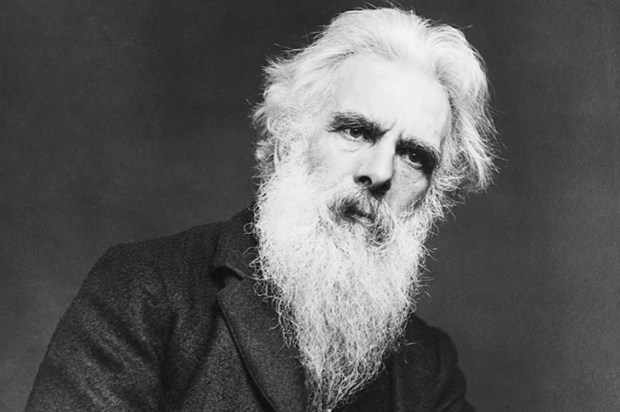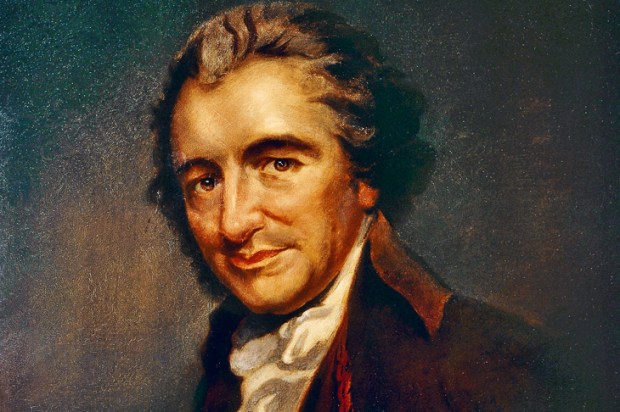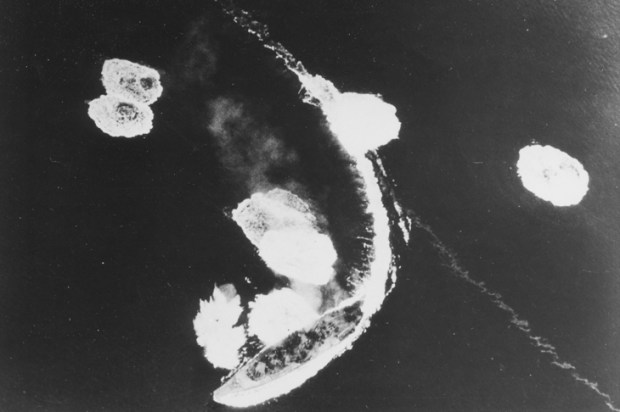The Shangri-Las’ song ‘Past, Present and Future’ divides a life into three, Beethoven-underpinned phases: before, during and after. Each section turns in on the next, binding them together with devastating effect. It is one of the oddest and most radically structured moments in pop, and one that came to mind when reading these three very different debut novels. With similar temporal concerns to the Lieber-Butler-Morton lyric, each traces the implications of past action on the present —and how these in turn could shape the coming years.
The future is most notably explored in Danny Denton’s brilliantly conceived The Earlie King & the Kid in Yellow, a polyphonic trawl through the murky waters of a permanently raining Irish dystopia. The plot, in precis, looks suspiciously conventional: a teenage runner for a crime syndicate decides to escape a life of violence, rescue his daughter from the head of the family and fulfil the promise he made to his now-dead girlfriend. But what could have been a standard-issue, sub-Clockwork Orange tale of unlikely redemption becomes a daring and tightly orchestrated story of myth, narrative and love.
The prose is a firecracker in the cloudburst; sentences twist one way and the other, Joycean wordplay meeting street slang and invented parlance. But Denton’s ability to create a fully rendered cityscape and a varied series of communities is equally impressive. His drowned Dublin is authentic and meticulous, cinematic and sensuous; his characters, whether fleeting or part of the principal cast, are rounded, full and bloodied. And while this is a violent, unforgiving novel, its tender depiction of friendship and family help counterbalance the unremitting darkness of the future. Hope, Denton implies, is always there, no matter how grey the sky.
If hope underscores The Earlie King, then fear is the primary driving force of Jennifer Nansubuga Makumbi’s Kintu: specifically, of the long arm of the past on the shoulder of the present. In 1750, on his way to pay homage to the new leader of the kingdom of Buganda, Kintu Kidda commits a murder that will curse generations of his descendants.
Epic both in intention and execution, Kintu contains a vast number of characters, avenging ghosts and portentous visions — and, in Uganda, there is no shortage of history to navigate. But though one might expect Idi Amin to feature prominently, Makumbi resists the temptation. Amin is there (just as the Aids epidemic, colonialism and tribalism are all present and correct) but only in as much as his regime weighs on the characters’ lives.
It is just one of many judicious narrative decisions that gives Kintu a sense of purpose. Some sections are weaker than others; Book I, for instance, focusing on the original Kintu Kidda, seems airless and hidebound with research. But the final coming together of the entire Kintu clan, arrived at with precision and intricacy, makes for a satisfying and thoughtful denouement.
While Denton and Makumbi play fast and loose with time, Emma Glass’s Peach unfurls in a more constricted framework. It opens in the aftermath of an attack on the narrator, Peach, and closes a few days later at a family gathering. What happens between these events — and how Peach deals with her assault — is related in an urgent, rhythmic unspooling of language. Internal rhymes, alliteration and onomatopoeia dominate the short, insistent sentences, suggesting a woman recreating the world entirely from words that immediately present themselves to her.
This improvisational style comes with many pitfalls, which Glass generally dodges, only fleetingly hitting a discordant note with an overstretched motif or bout of alliteration. Peach’s voice is unsettling, idiosyncratic and discomforting, as well as being moving and utterly absorbing.
Glass never quite lets the reader settle on what is actually happening (or what has happened) and what is Peach’s invention. The latter’s infant brother appears, literally, as a jelly baby; her boyfriend is part-tree; her biology teacher a blob of custard; only her parents, a hilarious pair of libidinous solipsists, appear as conventional human beings.
This sense of radical domestic fantasy gives the novel a raw power, as well as provoking multiple interpretations. It may occasionally confound, but Peach is a bold, memorable novel — gripping, strange and utterly singular.
Got something to add? Join the discussion and comment below.
Get 10 issues for just $10
Subscribe to The Spectator Australia today for the next 10 magazine issues, plus full online access, for just $10.
You might disagree with half of it, but you’ll enjoy reading all of it. Try your first month for free, then just $2 a week for the remainder of your first year.














Comments
Don't miss out
Join the conversation with other Spectator Australia readers. Subscribe to leave a comment.
SUBSCRIBEAlready a subscriber? Log in